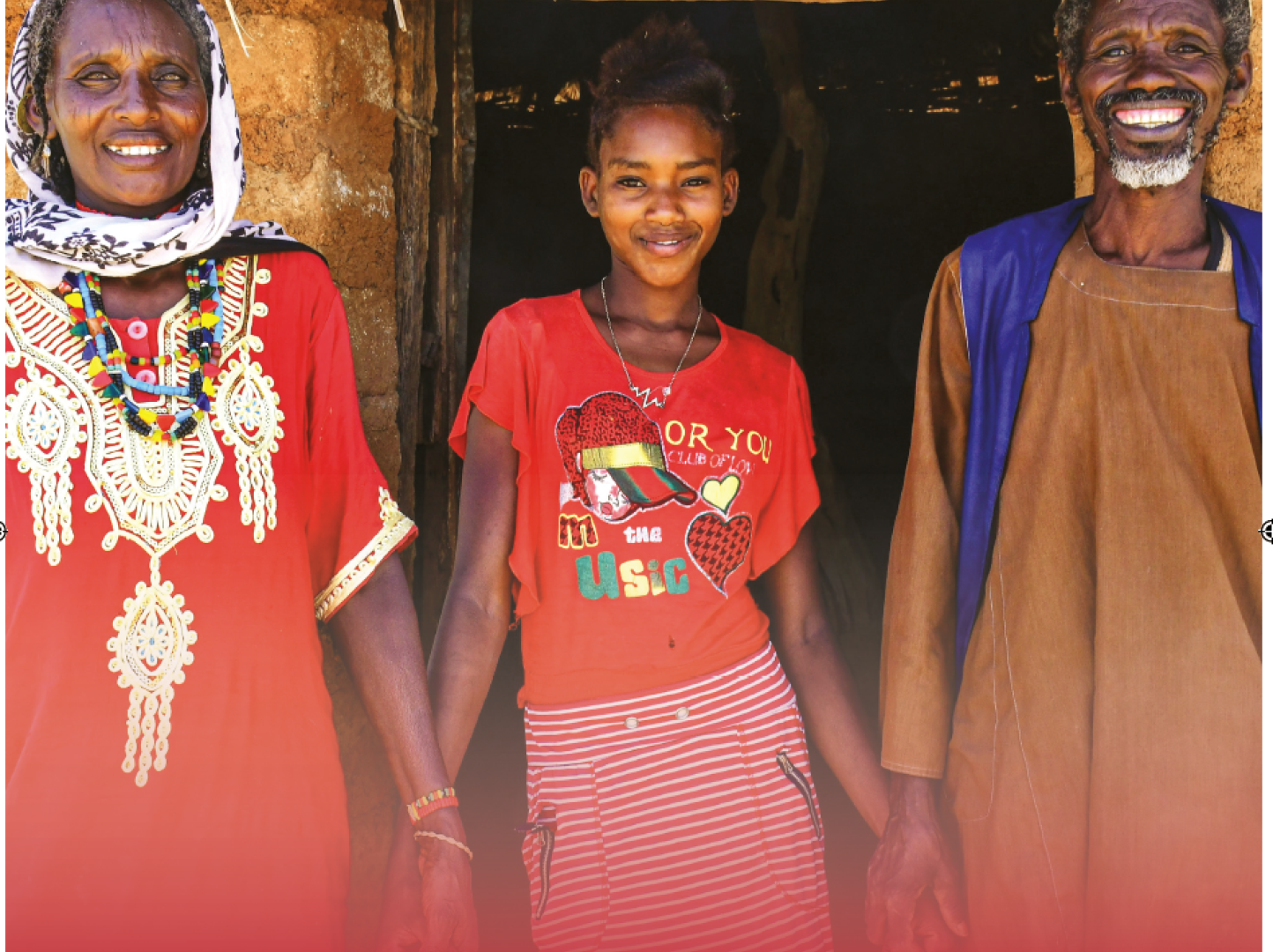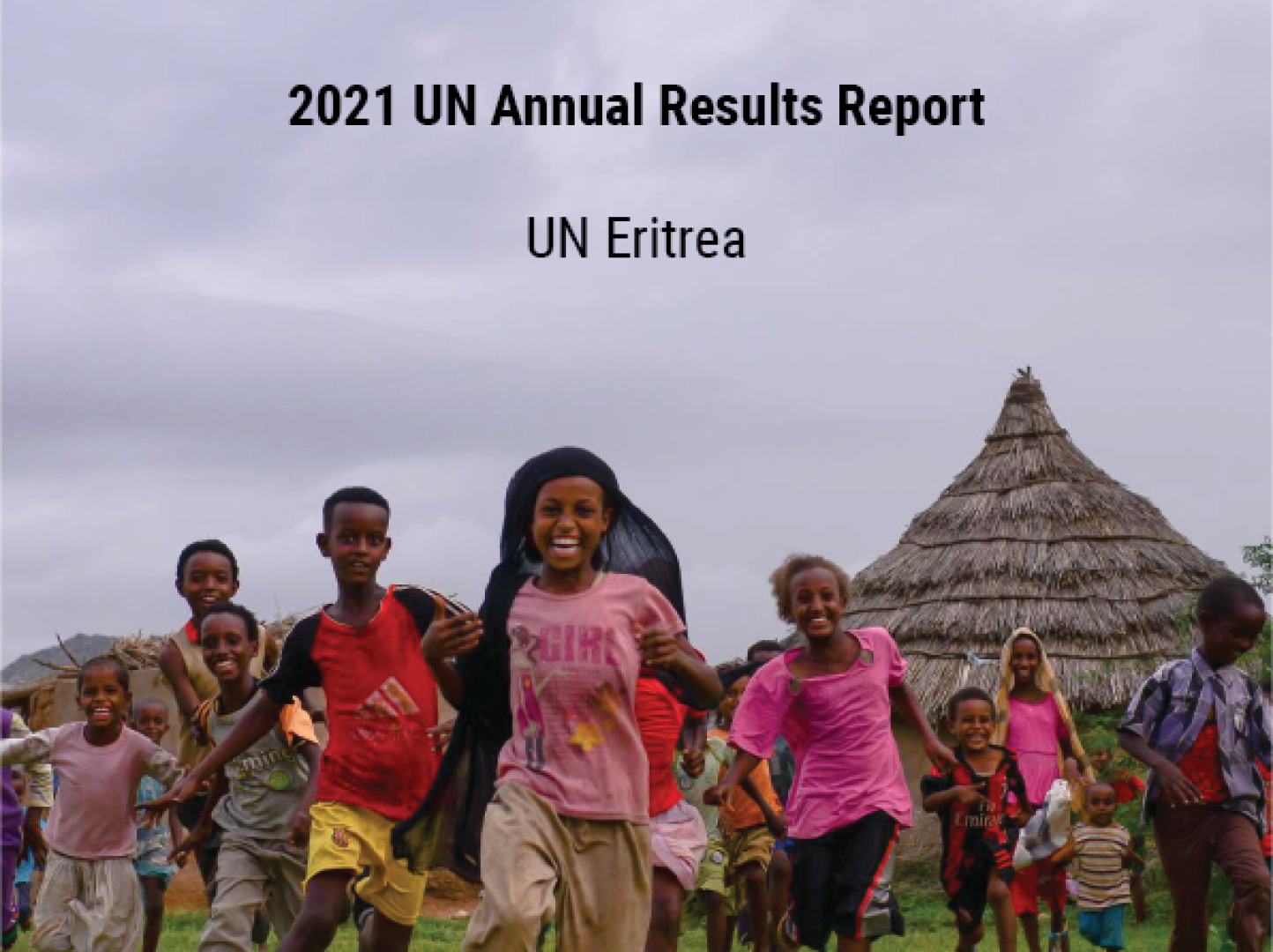2022 UN Annual Results Report UN Eritrea
I am pleased to present this Annual Results Report (ARR) on behalf of the UNCT for 2022 against a back - drop of many positive developments in the region and has rekindled hope for development thus potentially allowing countries including Eritrea to focus their efforts on human and sustainable development. Achieving SDGs in Eritrea requires strategic partnerships. There is no single actor that has all the resources needed to achieve SDGs. Reaching them is only possible through renewed emphasis on multi-sector, multi-stakeholder, transformative partnerships at scale. It is against this backdrop that the Government of the State of Eritrea and the United Nations system in Eritrea jointly signed the 2022-2023 Annual Work Plans (JWPs) to formally mark the implementation of the new Cooperation Framework. This Annual Results Report highlights the achievements but also challenges of SDG implementation in Eritrea. The country achieved notable but mixed results in advancing economic, social, and environmental progress. Strong progress was posted in nutrition, health, education, gender, agriculture, water, and sanitation. The country also made appreciable gains in climate action through adaptation and mitigation measures. Eritrea was also active in the international arena having worked collaboratively with the UN system to successfully prepare and present the Voluntary National Review (VNR) Report at the High-Level Political Forum (HLPF) in July 2022 in New York. The country also participated in COP27 in Egypt and the Transforming Education Summit (TES) in New York. Recently Eritrea took part in the 2023 Least Developed Countries Conference 5 (LDC5) in Doha, Qatar. This notwithstanding, Eritrea continued to face multiple layers of external and internal risks including a severe drought in the Horn of Africa, locust infestations, negative impacts of economic sanctions as well as passthrough effects of the Ukraine-Russia crisis with implications for livelihoods. Frequent locust infestations are a menace to agriculture with the potential to adversely affect food and nutrition security in the country. Growth projections at 4.7 percent and 3.6 percent for 2022 and 2023 fall below the 7 percent threshold for the achievement of SDGs. The unilateral and coercive sanctions are undoubtedly having debilitating and compounding effects on the people and the economy. Ballooning public domestic debt remains a huge challenge and exerts a significant negative permanent effect on economic growth. Although Eritrea’s public debt-to-GDP ratio dropped by 9.1 percentage points to 175 percent in 2021 relative to 2020; the country is still in debt distress . Thus, these areas remain a top priority for policy advocacy and strategic intervention from the UN system. I want to thank the Government of the State of Eritrea for the excellent access and engagement availed to various UN agencies to carry out their work in line with their mandates. Meanwhile, my Office will continue to constructively engage national authorities on behalf of those agencies that have a challenging mandate. I wish to particularly appreciate the Government for hosting several UN senior officials from the affected agencies to initiate dialogue and review the status of their work in the country. Finally, I wish to recognise the constructive leadership of H.E. Dr. Giorgis Teklemikael, Minister of Finance and National Development (MFND) and his technical team on the preparation of the 2022-2023 Joint Work Plans. Together, we can and should accomplish bigger and better milestones for the people of Eritrea. As the UN system in the country, we pledge our continued support to the Government of the State of Eritrea through our national and regional expertise and assets as we implement the new Cooperation Framework.
Aeneas C. Chuma United Nations Resident and Humanitarian Coordinator Eritrea



















